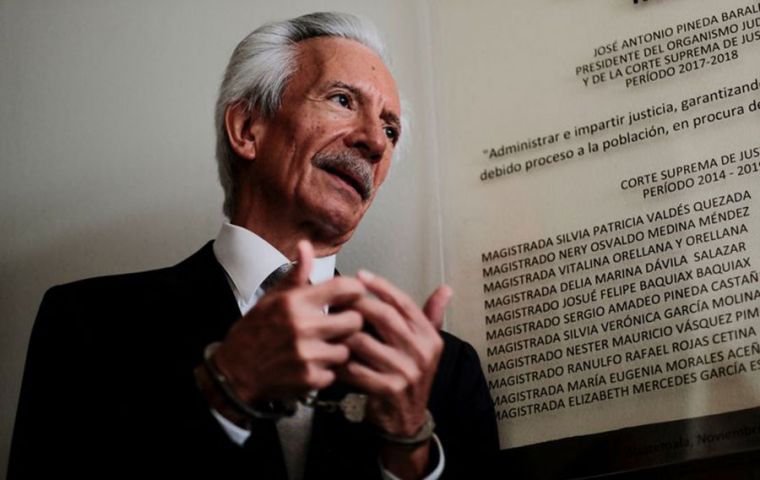MercoPress. South Atlantic News Agency
Guatemalan court hands down 6-year prison sentence to newspaper founder
 The case against Zamora has been dubbed “a witch hunt”
The case against Zamora has been dubbed “a witch hunt” José Rubén Zamora, founder of El Periódico, a newspaper critical of Guatemalan President Alejandro Giammattei which went out of business last month, has been sentenced to six years in jail for alleged money laundering, it was reported. Both Zamora and the Prosecutor's Office announced that they will appeal the ruling.
“José Rubén Zamora Marroquín is sentenced to six years in prison,” said Judge Otto Valvert upon announcing his ruling. El Periódico closed on May 15 after 27 years of circulation. Former Prosecutor Samari Gómez, who was tried with Zamora for allegedly leaking information to him, was acquitted by the court.
The prosecution had requested 40 years in prison for Zamora, who had hoped to be acquitted in this trial, which press organizations called a “witch hunt” in the midst of the June 25 general election campaign.
“I am going to appeal” to be acquitted, said Zamora, who looked serene and smiling as he was led in handcuffs from the court to the jail where he has been held for almost 11 months.
“At least I am happy to have gotten the buffoons of Fundaterror out of control,” referring to the right-wing Foundation Against Terrorism, the plaintiff in this trial, Zamora said. “I have a son in exile who has an arrest warrant [in Guatemala]. Fortunately, my wife left last night for the United States as well, because I think they want to capture her,” he added.
In this trial, which began on May 2, the prosecution charged Zamora with alleged money laundering, racketeering, and influence peddling. The court dismissed the last two charges, although it also sentenced him to pay a fine of some US$ 37,500.
“We are going to file a special appeal and the sentence we have asked for, of 40 years, we are going to request it again to the Appeals Court,” said a visibly upset Prosecutor Rafael Curruchiche.
Zamora accused President Giammattei and U.S.-sanctioned Attorney General Consuelo Porras of having fabricated the case to silence him for publications on government corruption.
“I am still innocent and he is still a thief, nobody in history is going to take that away from him,” Zamora insisted after the ruling.
After denouncing “criminal persecution and economic pressure”, the newspaper, founded by Zamora in 1996, closed definitively on May 15. In December it had already ceased to circulate in print and only kept the digital edition. Some of its reporters went into exile after a judge authorized to investigate them for their coverage of the criminal proceedings against Zamora.
Zamora said that among the dozen lawyers who participated in his defense “most were persecuted by the Guatemalan state, four were imprisoned and two left the country.”
The United States has criticized these prosecutions. “Criminalizing the work of journalists [...] goes against democratic norms and respect for freedom of expression”, said the State Department spokesman, Ned Price, in March.
International human rights organizations and press associations have also criticized the trial. “We have documented how they are about to extinguish the independent press in this country,” Juanita Goebertus of Human Rights Watch (HRW) said last week.
“We are facing a clear act of intimidation against all of Guatemala's journalism,” IAPA president Michael Greenspon said in a statement last Friday.




Top Comments
Disclaimer & comment rulesCommenting for this story is now closed.
If you have a Facebook account, become a fan and comment on our Facebook Page!